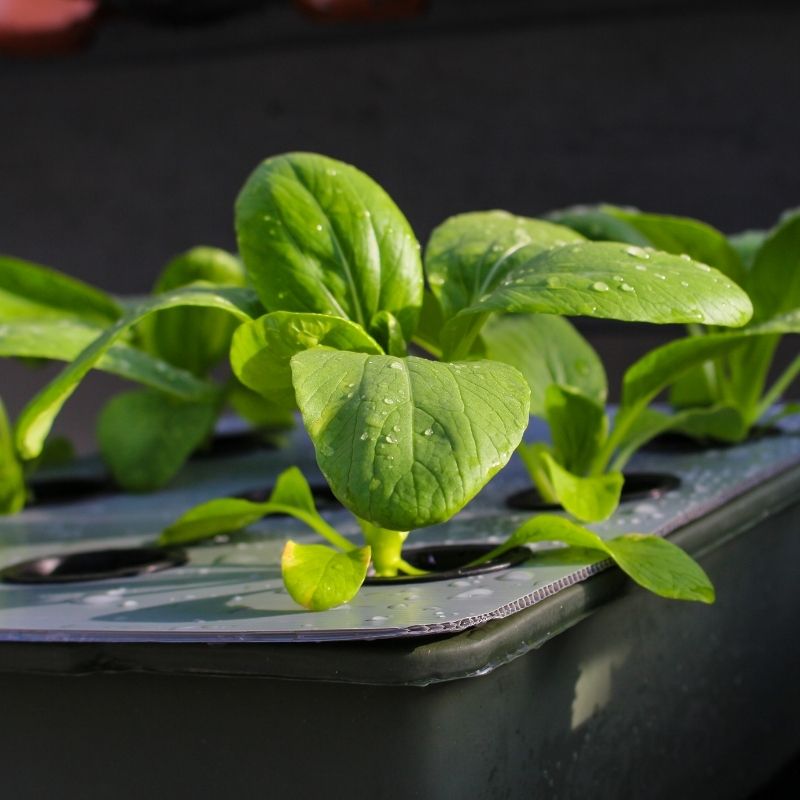 Growing with hydroponics is a fairly simple method of growing fruits, vegetables, and herbs quickly and allows for growing all year long. Some plants fare better than others with this soilless growing method as long as the basic necessities are met such as the temperature and pH levels with the right hydroponic nutrients.
Growing with hydroponics is a fairly simple method of growing fruits, vegetables, and herbs quickly and allows for growing all year long. Some plants fare better than others with this soilless growing method as long as the basic necessities are met such as the temperature and pH levels with the right hydroponic nutrients.
Plants Not Ideal for Hydroponic Growing
It can be helpful to know which types of plants work best for hydroponic growing and which type of plants and vegetation to avoid. Some plants are just not ideal for hydroponic growing and would either require more time and effort or special accommodations and just may not be worth the trouble. Types of plants to avoid include vining plants and bush types of plants like zucchini and squash. These types of plants take up too much space and can take over your grow area.
Best Plants for Hydroponic Growing
The best types of plants for hydroponic growing are plants that are known for reproducing and plants with a shallow root system. The most common plants that fare well with hydroponic growing include:
Strawberries – This sweet, beautiful fruit is a phenomenal starter that can be grown all throughout the year and grows very well with an ebb and flow type of hydroponic system and is easy to harvest without having to replant your plants. You will need to start with runners as strawberry seeds can take several years to produce fruit, but with the right starters you can enjoy home grown strawberries in just a couple of months. Some of the more common types of strawberry plants include the Red Gauntlet, Chandler, Brighton and Tioga.
Growing time: 60 days
pH: 5.5 to 6.2
Temperature: 0°C to 0°C
Lettuce – this is a great plant for beginners to grow with hydroculture as it shows you a lot about how your root systems work with little effort. Lettuce is a sturdy plant and should not need extra support with low height and a shallow root system.
Growing time: 30 days
pH: 6.0 to 7.0
Temperature: 7°C to 21°C
Spinach – similar to lettuce, spinach is a plant that grows exceptionally well in hydroponic systems with a quick harvest time from seedlings to plant. Spinach requires reduced water compared to other plants but a nutrient film is beneficial to improve oxygenation. You can harvest leaves from the outside towards the inside of the plant and enjoy a steady supply if planting close together.
Growing time: 14 to 20 days
pH: 6.0 to 7.0
Temperature: 18°C to 20°C
Peppers – crispy, flavorful bell peppers do well in hydroponic systems although require just a bit more care. You’ll want to prune your pepper plants at approximately 8” tall, this promotes pepper growth. Your grow lighting should be suspended about 6” above the plants for about 18 hours of light per day.
Growing time: Approximately 90 days
pH: 5.5 to 6.0
Temperature: Approximately 23°C to 27°C
Tomatoes – you can grow luscious tomatoes in your hydroponic garden although like peppers they need approximately 18 hours of light per day and are not particularly advised for beginners.
Growing time: Approximately 10 – 14 days
pH: 5.5 to 6.5
Temperature: 18°C to 25°C
Hydroponic Growing Tips
There are some important things you can do to help your plants flourish in your hydroponic grow system. Here are some basic tips to help you succeed:
Do not forget to sanitize – you should disinfect the reservoir before switching the nutrient rich solution, sterilize containers and tools and dispose of plant waste. Keeping the floors clean in your indoor garden will also help to prevent bacterial growth.
Do not ignore the pH – the pH level of the water is one of the most essential parts of the hydroponic growing system. If the pH is not properly balanced, your nutrient solution could be either too alkaline or too acidic which can create nutrient deficiencies. Different vegetables and fruits have different pH level needs. You will need to monitor the pH to be successful.
RainMakers Supply offers more growing tips for successful hydroponic growing whether you are a beginner or an advanced grower. Check out our grow store for all your necessities such as grow lights, tents, containers, nutrients, pumps, and more. Contact us with any questions on how to set up your hydroponic system and with any questions on what you can grow with hydroponics.
